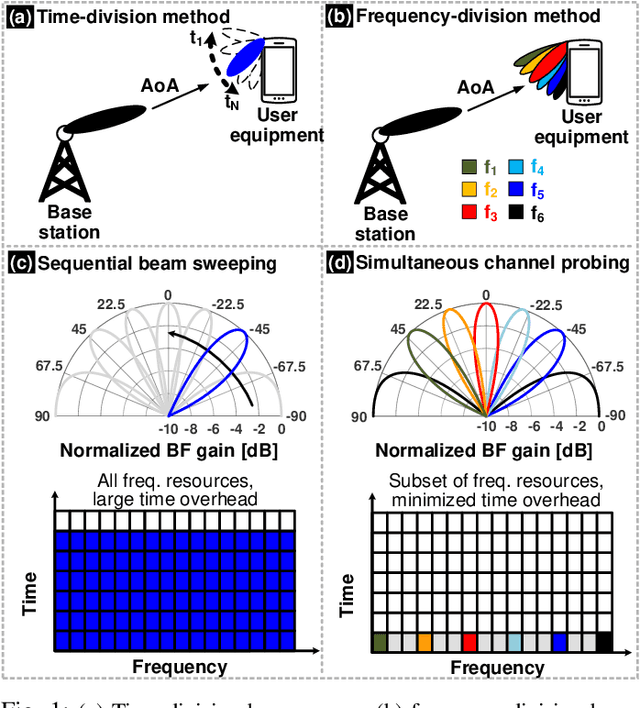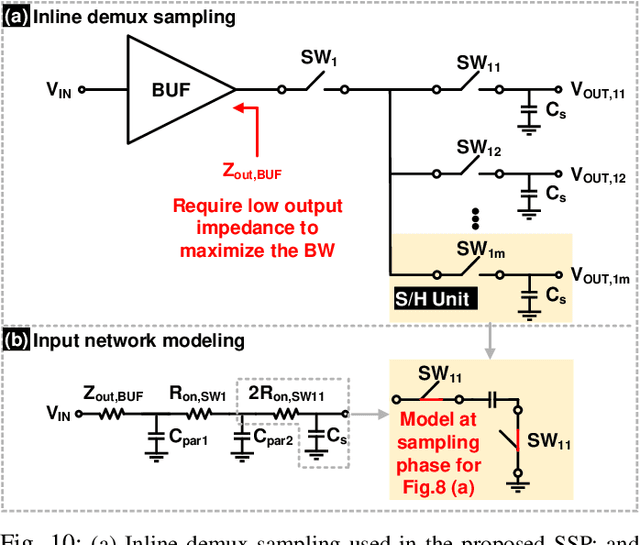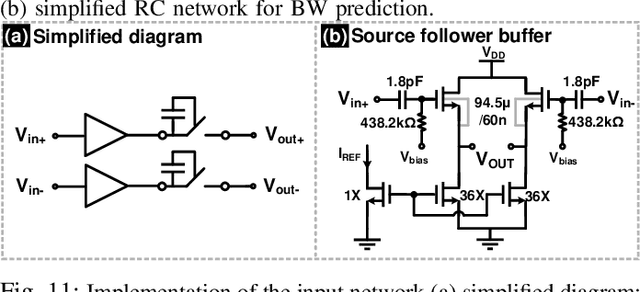Multi-Mode Spatial Signal Processor with Rainbow-like Fast Beam Training and Wideband Communications using True-Time-Delay Arrays
Paper and Code
Jan 08, 2022



Initial access in millimeter-wave (mmW) wireless is critical toward successful realization of the fifth-generation (5G) wireless networks and beyond. Limited bandwidth in existing standards and use of phase-shifters in analog/hybrid phased-antenna arrays (PAA) are not suited for these emerging standards demanding low-latency direction finding. This work proposes a reconfigurable true-time-delay (TTD) based spatial signal processor (SSP) with frequency-division beam training methodology and wideband beam-squint less data communications. Discrete-time delay compensated clocking technique is used to support 800~MHz bandwidth with a large unity-gain bandwidth ring-amplifier (RAMP)-based signal combiner. To extensively characterize the proposed SSP across different SSP modes and frequency-angle pairs, an automated testbed is developed using computer-vision techniques that significantly speeds up the testing progress and minimize possible human errors. Using seven levels of time-interleaving for each of the 4 antenna elements, the TTD SSP has a delay range of 3.8 ns over 800 MHz and achieves unique frequency-to-angle mapping in the beamtraining mode with nearly 12 dB frequency-independent gain in the beamforming mode. The SSP is prototyped in 65nm CMOS with an area of 1.98mm$^2$ consuming only 29 mW excluding buffers. Further, an error vector magnitude (EVM) of 9.8% is realized for 16-QAM modulation at a speed of 122.8 Mb/s.
 Add to Chrome
Add to Chrome Add to Firefox
Add to Firefox Add to Edge
Add to Edge